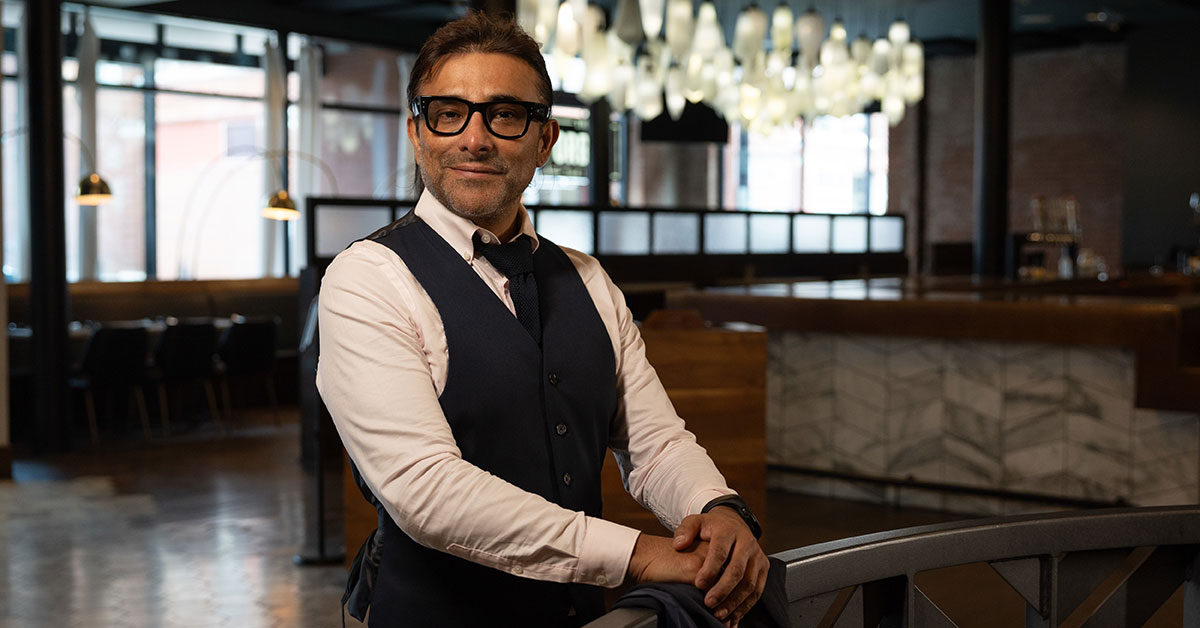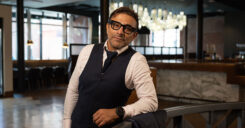
More than Room and Board: What hoteliers offer versus what consumers perceive they want
As an associate professor in the School of Hospitality and Agricultural Leadership at Missouri State University, Barreda uses consumer research to help independent hoteliers navigate the market.
“My research is theoretical, but it’s also very practical. It needs to be,” he said. “Academics are operating in a theoretical sense, a different time frame. Hoteliers are operating in the here and now. ‘What happened this season and what can help me next season?’
“I operate in both those worlds.”
Born in Peru, as Barreda worked toward his undergraduate degree there, he also watched another event with anticipation: A five-star, Egyptian-themed hotel being built in town. The independently operated hotel was hailed as a destination for the city, and dignitaries attended the opening with huge fanfare. At age 19, Barreda began working there.
Within four years, the hotel was bankrupt. Within six, a portion of it caught fire and burned.
It’s a memory that still lives in the forefront of Barreda’s mind today.
“My undergrad is in public relations and communications, but that event marked my future,” he said. “After that I said, ‘What happened if everything was so beautiful? The hotel was beautiful. We had a fancy European consulting firm developing the operations of the hotel. Everything was fancy. Why did it fail?’”
Barreda later learned there was a disconnect between what the local market wanted and how the European firm organized the hotel. There was a lack of market research on things such as room and menu pricing.

Research makes perfect
To help mitigate that disconnect for hotel owners, Barreda turned to consumers themselves for the answer. Online consumer surveys are Barreda’s No. 1 research tool.
“That’s the real focus. Real consumers. Asking consumers, travelers, tourists about their perception. Because that’s when it matters,” he says.
“Perception is not what is actually true, but what the consumer believes.”
A hotel’s website is a key piece of its operation. Barreda’s research found it needs to be interactive, or at the very least, perceived to be interactive. For an independent hotel without the backing of a brand like Hilton or Marriot, online goals can be harder to achieve.
“Being interactive is very straight forward, but people were not doing that,” he says. “How will that perception resonate on building the brand’s relevance, brand equity, brand attachment and so on?”
Barreda, together with his research partner and wife, Dr. Yoshimasa (Nancy) Kageyama, are among the foremost experts on hotel branding, notably hotel pricing strategies. Barreda and Kageyama’s work was published in numerous journals. Their articles include “Sustainability Efforts in the Hotel Industry: A Systematic Literature Review,” in the Journal of Tourism Management Research and “Customers’ Responses to Employee Extra Attention,” in the Open Journal of Business and Management. They’ve also garnered awards.
“Our work together has not only enriched the academic literature on hospitality and tourism business, but has also resulted in some thrilling milestones, including the Best Paper Award in the Tourism Review Journal,” Kageyama said.
To move the research from the academic side to the practical side for hoteliers, Barreda attends numerous conferences, presenting papers such as, “Assessing Perceptions of Countries in the Americas in a Promising Long Term Market: Considering a Theory-based Framework of Visitor-based Brand Equity.”

From one to many
Barreda’s research is moving from single hotel branding to destination branding — think of a region, such as Branson — and potentially even an entire nation.
“So, the unit of analysis is similar because it’s the traveler. Always I ask the traveler, right?” he said.
But Barreda explains the context is vastly different, the scale is much larger. The idea came from research in 2014 where he collected data during the FIFA World Cup in Brazil.
“We wanted to understand how a sporting event would affect the performance of hotels,” he said.
The World Cup research did just that, opening the door to the world.
“We are currently exploring opportunities to extend our research into emerging areas within destination development, competitiveness and branding nations,” Kageyama said. “Our goal is to push the boundaries of knowledge while addressing pressing issues faced by industry professionals.”
For Barreda, it all comes back to the start.
“It’s personal for me,” he says. “That was personal, what happened [when the hotel went bankrupt]. It affected me and a lot of people in that city. It can happen to anyone, but it does not have to.”
Further reading
- Story by Emily Letterman
- Photos by Jesse Scheve


No responses yet